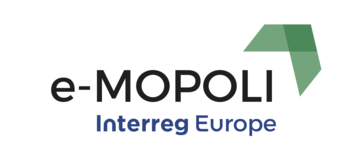Petrol JSC is in addition to being the largest Slovenian energy company, also the largest Slovenian importer, the largest Slovenian company in terms of revenue and one of the largest Slovenian trading companies. »The company's core business is trading in petroleum products, gas and other energy products. In this business area, Petrol generates more than 80 percent of all sales revenues, and also achieves a leading market share in the Slovenian market. The basic strategic directions of the Petrol Group's development are the energy transition to a low-carbon society, the development of new technologies and the transformation of established methods of production, sale and use of energy sources.” (Petrol JSC)
One of the Slovenian magazines Žurnal24 checked and confirmed the information on the novelty of paying for EV charging with cash and direct payment by credit card, without the use of a smartphone and the Internet, at one of the largest recharge service providers in Slovenia.
BSC, Ltd, Kranj – RDA of Gorenjska, has been supporting and trying to convince policy makers in Slovenia to define ad-hoc payments more precisely and service providers to include payments with cash and credit cards and thus enable the user having a better customer experience, since 2016. Better customer experience means having enabled easier and quicker payments, without technical problems, numerous RFID cards, contracts, searching for electric charging stations included in a roaming network of their choice, etc. The initiative of stakeholders from Italy, Austria, France largely supported this ad-hoc payment solutions with recommendations in 2019 given to the EU Commission, within the e-MOTICON project consortium, supported by European Regional Development Funds. However, the rationalization of the service providers was that cash and credit card payments for EV charging would increase the price of the service due to transaction costs and are therefore not sensible or possible. Petrol assures that "there is no difference in the price of charging for the mentioned payment methods (Žurnal24, 2021)." It seems that where there is a will and competition, solutions can be found. Petrol, as a leading company, understands the increasing need for a good consumer experience and the opportunity to have a higher demand by providing cash payment possibility in the gradually increasing EV market. Besides that, strengthening the market position is always a good thing for a company, especially since Hungarian company MOL, overtook Austria OMV and could be a serious competitor in the near future.
There is still a lot to do in terms of decreasing price of charging. According to the Žurnal24 reporting necessary changes at the system level are needed, as currently a provider pays fixed monthly costs of billing power and contribution (RES, CHP), which is directly transferred to the price of the charging service. "Regardless of the number of charges per month, the cost is always the same. A sensible proposal would be to temporarily withdraw this cost for electric charging stations until the maturity of the electric vehicle market," suggest at the largest energy provider in Slovenia.
Petrol is already the operator of the largest network of public Charging stations in the country, and by 2025 it is expected to have over 1,500 charging stations. As they say, at Petrol, this year they took another important step in the field of charging infrastructure, as they upgraded the appropriate backbone charging network on the highway and set up several charging stations along it, reports Žurnal24.
What is still promptly needed in terms of infrastructure, beside slow charging infrastructure for multi dwelling settlements, are more of over 100kW charging stations, charging infrastructure for upcoming electric heavy-duty vehicles and fast charging stations dedicated only for taxis.


![[NEWS] Brescia: E-bike sharing in Brescia](/fileadmin/user_upload/tx_tevnewsevents/news/image_1664960602.jpg)
![[NEWS] Rogaland: battery-only high speed craft](/fileadmin/user_upload/tx_tevnewsevents/news/image_1664804367.png)
![[NEWS] BSC: promoting e-mobility in Gorenjska](/fileadmin/user_upload/tx_tevnewsevents/news/image_1660136312.png)
![[NEWS] BSC: new opportunities for cooperation](/fileadmin/user_upload/tx_tevnewsevents/news/image_1660136159.jpg)
![[NEWS] Rogaland: Solar power for electric airplanes](/fileadmin/user_upload/tx_tevnewsevents/news/image_1660135530.jpg)
![[NEWS] Bucharest: decarbonization of transports](/fileadmin/user_upload/tx_tevnewsevents/news/image_1656521459.jpg)
![[NEWS] Calabria: CENTRE FOR SUSTAINABLE MOBILITY](/fileadmin/user_upload/tx_tevnewsevents/news/image_1655983407.png)
![[NEWS] BSC: rental system network for bikes](/fileadmin/user_upload/tx_tevnewsevents/news/image_1655967495.png)
![[NEWS] Attica: Electromobility in Paiania](/fileadmin/user_upload/tx_tevnewsevents/news/image_1655110894.png)
![[NEWS] Attica: First e-bike festival in Athens](/fileadmin/user_upload/tx_tevnewsevents/news/image_1655110292.png)